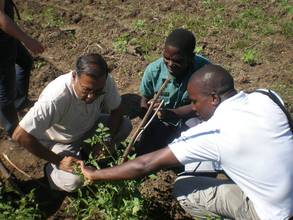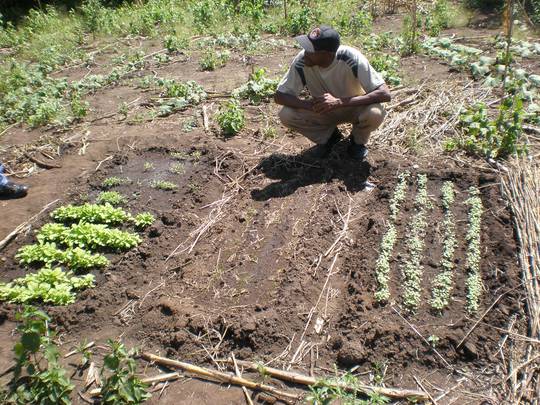Agricultural extension workers of the program in Moatize
The Integrated Plan for Poverty Alleviation, which is in process in Moatize, Tete, found deficits in the practice of cultivation and consumption of vegetables. Furthermore, a high degree of illiteracy was registered in the target group, which inherently leads to problems with the agricultural production and productivity, as well as with the herding and breeding of animals.
 |
Rural development includes production strategies for horticulture and an animal restocking program. The component of capacity building includes the training of extension workers. Material concerning the technologies and techniques of animal breeding are dealt with. Youths and adults of the communities constitute the target group. The trainings aim at elevating the process of animal restocking.
These strategies combat the problem of weak production and productivity of animal breeding, which often stems from a lack of knowledge about basic techniques and animal treatment.
The program approaches extension workers with workshops and visits, during which the participants are trained. To facilitate this work the participants are arranged into groups. Individual farmers are also assisted on their own fields in a period of 7 days.
This mode of intervention has led to an increase in the exchange of experiences, the sharing of tools and the adoption of production techniques. This in turn led to an overall enhanced outcome of production and productivity.
 |
